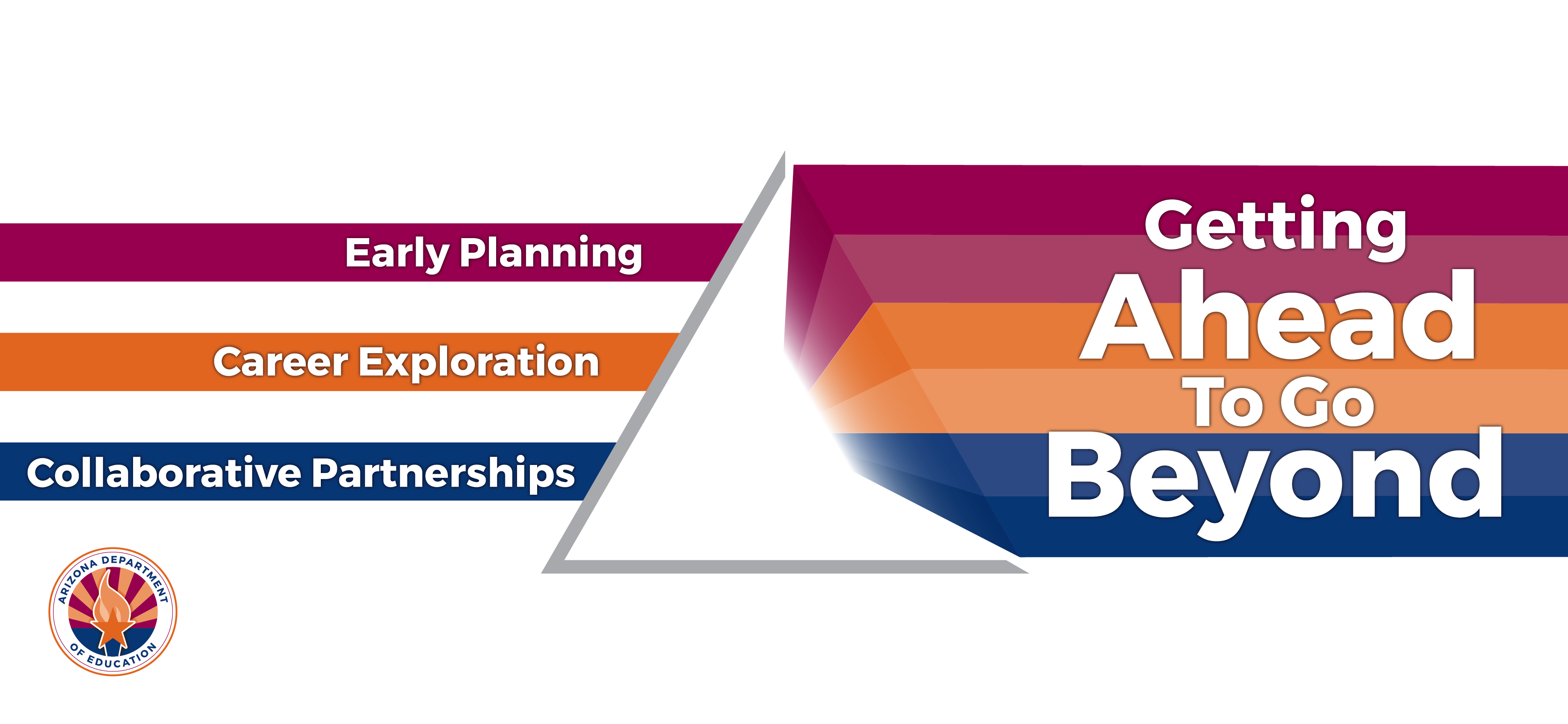Secondary Transition
Announcements
ADE/ESS Arizona State Board Rule Change for Secondary Transition Services Memo
Register for Transition 101 Blackboard Courses
Learn More About Secondary Transition
Secondary Transition bridges school programs and adult life opportunities, such as higher education, employment, and independent living. This process is guided by a transition plan, as required by Indicator 13 of the IDEA Part B.
The Transition Planning Process:
The transition plan, part of the IEP, is collaboratively developed with the IEP team, focusing on the student's input. The team helps the student identify measurable postsecondary goals (MPGs), services, and supports using data from age-appropriate assessments. Student strengths are crucial in forming MPGs, and all transition plan requirements must be met.
IDEA Part B Indicators
There are 17 Indicators, four of which are related to Secondary Transition: Indicators 1, 2, 13, and 14
Summarized Descriptions of IDEA Part B Indicators
Post School Outcomes (PSO) Survey (Indicator 14) Requirements
All Arizona students with an IEP at high school exit will be contacted to take the Post-School Outcomes (PSO) Survey one year later. The survey, conducted by the student's former school or district, occurs annually from June through September.
ADE's High School Graduation Page
Graduation (Indicator 1) and Dropout (Indicator 2)
The Arizona State Board of Education sets high school graduation requirements, detailed in Title 7, Chapter 2 of The Arizona Administrative Code and State Board Rule R7-2-302. These standards apply to all Arizona students, including those with disabilities.
Secondary Transition Requirements
Transition Planning (Indicator 13) Requirements:
Transition services for students are to be in effect in the IEP in place when the student ends 9th grade or age 16, whichever is first, or earlier, as determined necessary by the student’s IEP team. Required components include:
- Age-Appropriate Transition Assessments—Updated Transition Assessment-Wakelet
- Measurable Postsecondary Goals (MPGs)
- Coordinated Set of Activities
- Course of Study
- Aligned Annual IEP Goals
- Additional Requirements (Student Invitation, Outside Agency Participation, Update Plan Annually)
Collaborative Partnerships
- Intergovernmental Agreement
- Partners: ADE, AZ Rehabilitation Services Administration (RSA) Vocational Rehabilitation (VR), and the Division of Developmental Disabilities
- Data Sharing Agreement
- Partners: ADE and AZ RSA VR
Support and Technical Assistance
Sign up for email list updates related to Secondary Transition! Please use the link below to also edit or cancel your subscription to the Secondary Transition or Post School Outcomes email lists.
Access the Secondary Transition Email Lists
Do you have questions about Secondary Transition? Do you need technical assistance, support, or professional development on Indicator 13? We want to hear from you!
Secondary Transition Team Contact Information
Secondary Transition specialists provide services statewide and are based in the Phoenix and Tucson areas. For general questions, please email the Secondary Transition Inbox.
Mailing address:
1535 W. Jefferson Street, Bin #24
Phoenix, AZ 85007
Page updated 03/07/2025







